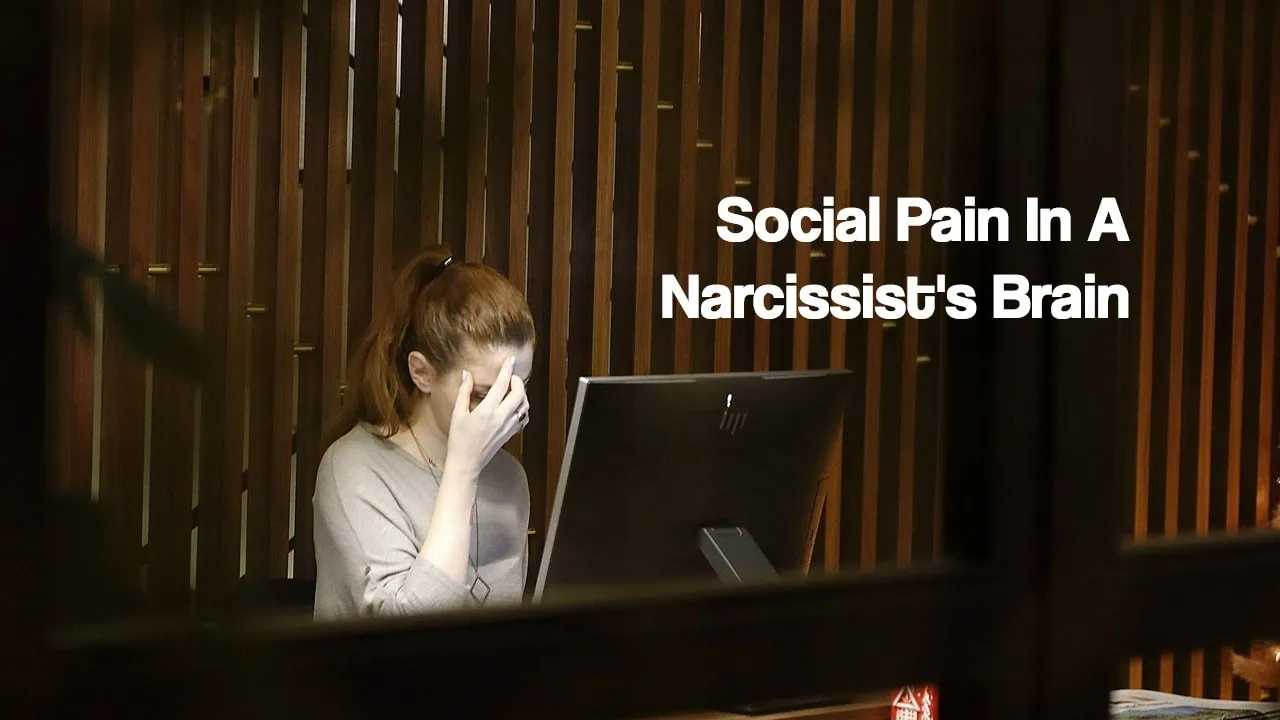Today's Saturday • 3 mins read
Narcissists are overly self-focused people. They have avoidant attachment styles and tend to stay aloof in their relationships.
They often claim that they don’t need others.
But the truth is, narcissists are very sensitive to how others view them.
- They need constant attention and positive feedback to feel good about themselves.
- When they feel rejected or excluded, they can react strongly, even aggressively.
A study used brain scans to see whether this sensitivity also shows up in their brains when they feel socially excluded.
The insights researchers discovered are fascinating:
A narcissist’s brain’s social pain network fires up when they feel left out.
Read on.
- Social exclusion = when certain people or groups are systematically marginalized or are not allowed to access important resources of society, like jobs, education, or social activities.
- Cancel Culture = publicly calling out or boycotting certain people, often on social media, due to their insensitive or offensive actions, statements, or beliefs. Its goal is to hold people accountable for their behavior, but it can also lead to social exclusion.

The Study: Narcissists’ Social Pain
Researchers from the University of Michigan recruited 40 adolescent boys, aged 16 to 17. They were right-handed and not taking any psychological medications.
- They were first introduced to two male confederates. The boys were told that they would play a ball-tossing computer game called Cyberball with the men.
- Next, they had to answer 40 questions in a survey called the Narcissistic Personality Inventory (NPI), to assess their narcissistic traits.
- Then, they were scanned using fMRI while playing Cyberball with the human confederates. Actually, they were playing against computer-generated players, not humans.
The fMRI data compared brain activity during phases of social inclusion and social exclusion within the game. The researchers then analyzed how the neural responses to social exclusion were related to their narcissism scores.
The boys who scored higher in narcissism had stronger brain reactions in brain areas linked to social pain.
The researchers wrote:
“These findings reinforce that hypersensitivity to exclusion in narcissists may be a function of hypersensitivity in brain systems associated with social pain.”
The Surprising Sensitivity of Narcissists
What’s going on in a narcissist’s brain? It was as if their brains were shouting, ‘This really hurts!’ when they were excluded from a group.
So, most of us assume that narcissists don’t bother about being left out because they are so focused on themselves. But this study showed the opposite.
Their brains actually react more strongly to social pain than others. It’s like they have an extra-sensitive ‘social pain alarm’ in their minds.
This might explain why narcissists sometimes act out unpredictably or become aggressive when they feel rejected.
Why This Matters for Understanding Narcissism
This research gives us a better understanding of narcissists.
On the outside, narcissists may put up a very confident act like they don’t need anyone. But on the inside, their brains are reacting hard to come to terms with when they feel excluded.
This could explain why narcissists sometimes struggle in relationships. Or why they don’t care about others.
They might be trying to shield themselves from that intense social pain.
Final Words
So, the next time you come across an overly confident and self-centered person who doesn’t pay much attention to you, know that there might be more happening beneath the surface.
Our brains are complex, and even people who appear not to care about others might actually be more sensitive than we realize.
√ Also Read: 4 Types of Psychopaths (Traits And Behaviors of Each)
√ Please spread the word if you found this helpful.
• Our Story!
» You deserve happiness! Choosing therapy could be your best decision.
...
• Disclosure: Buying via our links earns us a small commission.